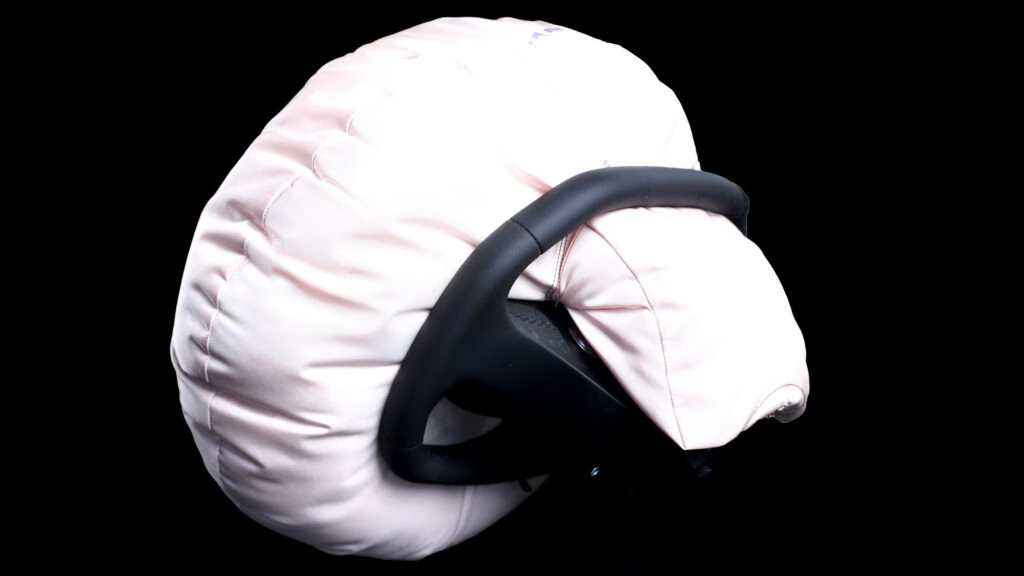How are counterfeit airbag inflators ending up in US vehicles?
It’s a question that’s rattling both car owners and safety experts lately. Counterfeit airbag inflators—mostly traced to a Chinese company called DTN Airbag—are slipping into the US through aftermarket supply chains. Here’s the kicker: many repair shops don’t even realize they’re installing fakes. These inflators are sold at a fraction of the price of genuine parts, sometimes as little as one-tenth the cost, making them tempting for budget-conscious repairs. But that bargain comes at a steep risk.
The National Highway Traffic Safety Administration (NHTSA) has opened a federal investigation after at least seven incidents linked to these faulty inflators, five of which were fatal. The inflators in question are believed to contain unstable chemicals that can ignite unpredictably during deployment. Instead of cushioning a crash, they explode with violent force—turning a life-saving device into a deadly hazard.
What’s the real danger behind these fake airbags?
Let’s not sugarcoat it: the consequences are devastating. In one tragic case, a 22-year-old mother in Florida lost her life when the counterfeit airbag in her Chevrolet Malibu exploded during a low-speed crash. The device sent shrapnel flying, causing fatal injuries. Investigators described the explosion as being “like a grenade.” And this isn’t an isolated incident. According to data reported by The Wall Street Journal, the NHTSA has linked DTN inflators to multiple deaths and injuries across the country.
Why are repair shops using these parts?
It’s not always a story of malice—sometimes it’s just a lack of awareness. Counterfeiters have become alarmingly good at mimicking the look and packaging of genuine airbag inflators. Bob Stewart, who heads the Automotive Anti-Counterfeiting Council and oversees global brand protection at General Motors, points out that these fakes are often made from subpar materials and lack the engineering rigor of authentic parts. The result? A ticking time bomb hiding behind your steering wheel.
Many shops source parts from overseas suppliers, trusting that what arrives is legitimate. But with the rise of online marketplaces and global shipping, it’s easier than ever for counterfeit goods to slip through the cracks. And while the cost savings might seem attractive, the risks are simply not worth it.
What is the government doing to stop this?
Federal officials aren’t mincing words. Transportation Secretary Sean Duffy has issued a stern warning: any shop caught importing or installing these counterfeit inflators is not just endangering lives—they’re committing a crime. The NHTSA is ramping up its investigation, and there’s a push for stricter oversight of aftermarket parts imports.
But here’s the tricky part: nobody knows exactly how many vehicles on US roads might be equipped with these dangerous inflators. DTN Airbag claims its products are banned from sale in the US and denies doing business here, but the evidence tells a different story. The federal probe is ongoing, and authorities are urging both repair professionals and drivers to stay vigilant.
How can drivers protect themselves from counterfeit airbags?
First, knowledge is power. If your vehicle has been in a crash and needed airbag replacement, ask your repair shop for documentation on the parts used. Don’t be afraid to request proof that genuine, manufacturer-approved components were installed. If you’re buying a used car, check its repair history and ask pointed questions about any airbag replacements.
It’s also smart to stick with reputable, certified repair shops—especially those affiliated with your vehicle’s manufacturer. These shops are more likely to source their parts directly from trusted suppliers. And if you suspect your car might have a counterfeit airbag, contact your local dealership or the NHTSA for guidance. It’s better to be safe than sorry.
What’s the broader impact on auto safety and trust?
This scandal is a wake-up call for the entire automotive industry. The rise of counterfeit safety parts isn’t just a US problem—it’s a global one. According to a 2023 report from the Organisation for Economic Co-operation and Development (OECD), counterfeit automotive parts account for billions in global trade each year, with safety-critical components like airbags and brakes topping the list.
The ripple effects go beyond individual tragedies. When drivers lose faith in the safety of their vehicles, it undermines decades of progress in automotive engineering and public health. Manufacturers, regulators, and repair professionals all have a role to play in restoring that trust.
The big takeaway? Airbag safety isn’t about perfection—it’s about smarter adjustments. Start with one change this week—whether it’s asking your mechanic the right questions or double-checking your car’s repair history—and you’ll likely spot the difference by month’s end. Your peace of mind is worth it.

